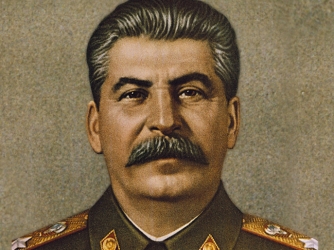AnonymousSpeed
Pink Plastic Army Man
- Joined
- Nov 21, 2014
- Messages
- 399
I don't know, I did intend for you to be able to build both a Basilica and another religious building in the city, and it was in part intended to represent the fact that modern day Constantinople is filled with buildings of various different religions. Perhaps it could instead somehow provide the benefits of the worship buildings from different religions in the city or that were at one point dominant.You could make the Basilica function like the Stables/Barracks and Museums. Have either a Worship Building or a Basilica.
Why thank you.I love this design!!!
Welcome to the forum.Hey guys, this is my first post on CivFanatics!
I actually quite like this ability, primarily for the second part of it.Leader Bonus: Priest King
Newly settled cities start as the dominant religion in your Capital. +1 Diplomatic Visibility with civilisations you share a religion with.
If I might speak honestly, that doesn't seem like the most interesting way to benefit Mali's commercial hubs, since most of their adjacency bonus comes from rivers. Since they only have the one big adjacency bonus (and the bonus for being next to other districts but who cares), doubling it, to me, seems a bit awkward. Just like my use of commas in that last sentence.Also, I would suggest you to triple the adjency bonus for CH instead of doubling it, or generating double gold for mines (in reference of malian gold mines).
oi wot m8 r ye disin me molly ell m8 readier botox cooz imma smeck yer brins m8.Except that, I feel like it is certainly the best designed Mali civ I've seen for now !
Mali
Unique Ability: The Bright Country
- +1 Economic Policy slot after entering Medieval Era
- Commercial Hubs get a standard adjacency bonus (+1 Gold) for being next to resources
- Trade routes to foreign civilizations generate +1 Gold for each mined resource improved in Malian territory which is not improved in the territory of the target civilization.
Unique Unit: Sofa
- Replaces Crossbowman
- 35 Ranged Strength and 35 Strength (vs 40 and 30, respectively)
- After being engaged in melee combat or engaging in ranged combat with another unit, the enemy unit will take additional damage after the battle equivalent to 10% of their health before the battle.
Unique Infrastructure: Sahelian Mud Temple
- Replaces Trading Post
- Mali's trade routes generate +1 Gold and +1 faith for each city with a Sahelian Mud Temple they pass through.
- Generates pressure for Mali's religion
Leader: Mansa Musa
Capital: Niani
Leader Ability: The Royal Pilgrimage
- Converting a city to your religion establishes a Sahelian Mud Temple in it
- Establishing a Sahelian Mud Temple in a city with a trade route generates a burst of religious pressure equivalent to a single spread from an apostle
- Can purchase Missionaries, Apostles, and Holy Site buildings with Gold
- Will try to monopolize any resource improved by mines in his territory. Dislikes Civilizations which possess these resources. Likes Civilizations which do not possess these resources, but have access to other luxury resources.
Also, I should note that I intentionally didn't use the words "Mosque" or "Hajj" in this design, because with the current flexibility of the religious system, I didn't want to use terms specific to individual religions. Because, you know, the person playing Mali may found Confucianism and select Meeting Houses.
Oh yeah and the Civilization ability is totally overpowered. Like, that's a bunch of extra gold.
Last edited:


 )
)





 and +1 amenity for the city in which they are housed.
and +1 amenity for the city in which they are housed. in addition to the usual amenities.
in addition to the usual amenities.